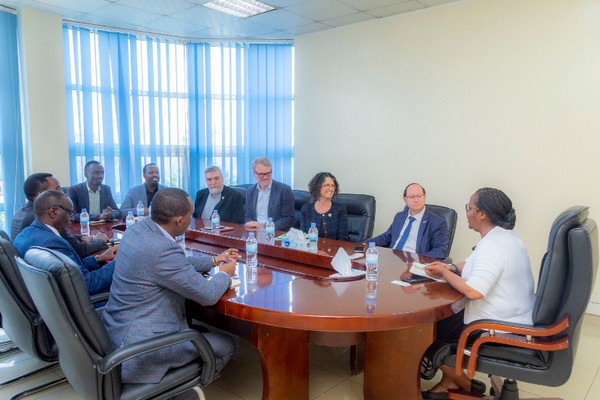The International Seed Federation (ISF) and non-profit organization Fair Planet signed a Memorandum of Understanding this week to partner on a 'Seed Resilience' project which will focus on the development of several crop pillars: vegetables, pulses, potatoes, and cereals.
The project aims to contribute to the establishment of local and more resilient food systems, starting with access to high-quality seeds, paired with training on Good Agricultural Practices (GAP).
Fair Planet has a proven track record of working with multiple seed partners in Africa for the benefit of smallholder farmers, having conducted professional and independent variety trials in Ethiopia and Tanzania to identify the most suitable vegetable varieties for local farming practices and market needs. To maximize the potential of these improved varieties, thousands of smallholder farmers are trained in Good Agricultural Practices (GAP) in a second phase. The use of improved varieties in combination with GAP has been shown to increase farmers' income substantially.

"During the UN Food Systems Summit 2021, ISF launched four key initiatives to advance seed resilience to contribute to the 2030 Sustainable Development Agenda. One of them is to build a project on the ground to promote inclusive seed systems – and we are very pleased that it is becoming a reality in Rwanda," said Michael Keller, Secretary General of ISF.
"The reality on the ground is that improved varieties remain out of reach to many farmers in Africa. The project could serve as a model for future initiatives aiming to increase food and nutrition security and provide new economic opportunities to smallholder farmers in other developing countries, where farmers' access to quality seed is still lacking," said Dr Shoshan Haran, founder, and president of Fair Planet.
Together with local organizations in Rwanda (Universities and Ministry of Agriculture extension departments), the project will trial seed varieties and support the adoption of ag-tech solutions in the important agro-climatic regions of Rwanda, followed by training of smallholder farmers in GAP with the best performing varieties and ag-tech solutions. Fair Planet will implement its unique training methodology developed and implemented successfully in Ethiopia and Tanzania, in which lead farmers are trained on their own farmlands through weekly visits and receive technical support from Fair Planet and local experts throughout the growing season.
Agriculture is crucial for Rwanda's growth and reduction of poverty. As the backbone of the economy, it accounts for 39 percent of the gross domestic product (GDP), 80 percent of employment, 63 percent of foreign exchange earnings, and 90 percent of the country's food needs (Source: FAO report). Sharing a border with the Democratic Republic of Congo (DRC), Rwanda is currently exporting agricultural produce to the neighboring DRC, where just a small fraction of the land is arable and actively cultivated. Rwanda has a very high potential to become a significant exporter of fresh vegetables and food produce to DRC, one of the world's largest countries with more than 90 million people.
Access to improved varieties will allow Rwandan farmers to produce and sell significantly higher yields with better produce quality. The crop pillars were selected as staple crops with essential nutritive 2 values to the local population: fresh vegetables for vitamins and fibers, pulses for proteins and soil fertility improvement, and cereals and potatoes for carbohydrates.
The project is initially set for five years and will involve national authorities in Rwanda, international organizations and actors involved in plant breeding, research, and farmer development activities, national and regional seed associations, seed companies, and farmers' organizations.
Source: worldseed.org
